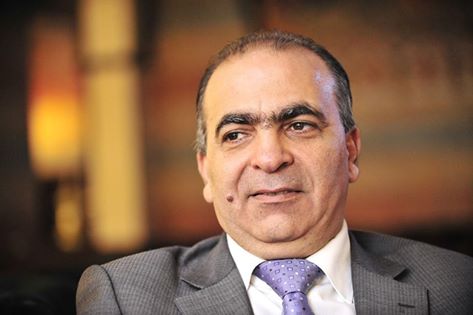Russia is still insistent on holding negotiations between the Assad regime and the Syrian opposition in Kazakhstan’s capital Astana. It still believes it can choose the negotiators of both sides and impose an agenda on them, as well as share the task of determining the talk’s outcomes while guaranteeing their implementation with both Iran and Turkey.
The negotiations are due on Jan. 15 — that is, after about two weeks. It is still not known who will be invited and what they will discuss. Will the negotiations be limited to discussing a comprehensive ceasefire in Syria, or will they include the issue of a political solution and the development of a timeline to set up a civil peace and begin the political transition process?
Russia says that it will not invite the Syrian National Coalition or the Higher Negotiations Committee to Astana, while we have not heard any comment about their lack of invitation from their backer and host, Turkey. Meanwhile, Riyadh and Doha have maintained their silence so far and no official from the two countries has commented on the issue directly. The United State has been content to say that Russia, Iran and Turkey on their own will not be able to achieve peace in Syria despite welcoming any constructive step which could contribute to achieving a solution which stops the war in Syria.
However, from the Syrian national viewpoint, is it really possible for Russia, Turkey and Iran to achieve a lasting solution which includes the integrity of Syria and rights for all its citizens which enables them to choose their political system with a modern constitution which establishes a secular and democratic state, as stated in the announcements emerging from the meeting of the three countries in Moscow?
These three countries are actively occupying Syria, while Russia and Iran oversee the mafia Assad regime and dominate its decision making, with the two countries able to impose what they please if they agree with each other, and then with Turkey. However, the recent victories which Iranian militias have achieved with Russian air support in both Aleppo and the Damascus countryside, were not so decisive as to eliminate entirely the influence of the role of the Syrian armed opposition and its remaining supporters, so that Russia and Iran can simply impose whatever solution they agree with Turkey alone, while ignoring Arab interests and the roles of America and Europe.
At the same time, Turkey cannot impose this agreement on all the opposition political and military forces without American, Qatari and Saudi approval, as these three countries share influence with Ankara over the official Syrian opposition and some of the major rebel groups. The Arab Gulf countries and the European Union have a role which cannot be ignored in implementing any lasting solution and what that will require in terms of financing and experience in reconstructing what has been destroyed by Assad’s war on his people, as well as stabilizing the Syrian economy, which has ground to a complete halt.
It also ignores the demands of the Syrian people for a political transition that restores their country and their ability to determine their fate outside of the control of Assad and the mafia he runs, or without trapping them under the tyranny of radical factions and their takfiri ideology. Any solution that it is imposed by force on a war-weary community will not last long.
On top of all this, it is necessary for Syrians and their political and social elite to study their situation carefully and play their role in the absence of a unified and independent leadership for the Syrian people. They must take on the task of defending their interests in the face of those greedy for control over their country, so they cannot ignore Astana completely or the critical role of the three countries whose armies control the biggest portion of Syria. At the same time, they must deliver a clear message to these three countries that any deals that come as a result of the meeting must respect objective international and regional standards and satisfy the legal and necessary demands of the Syrian people for returning stability to Syria, offering an opportunity for reconstruction, and allowing the return of the displaced inside and outside Syria. Without this, it will not find support from them and they will do their best to foil it and look for alternative solutions that can end the calamities of their people and prevent Syria from entering a circle of regional and international influence, and the exploitation of the country and its people by these international and regional powers as a space for proxy wars. A realistic and sustainable solution cannot be created in Syria without American and Russian consensus first and foremost, and the blessing of Arab and European countries requires waiting until the Trump administration enters office on January 20 and begins to determine its priorities and its relationships with the parties that are part of the struggle in Syria.
Responsibility for the information and views set out in this article lies entirely with the author.


